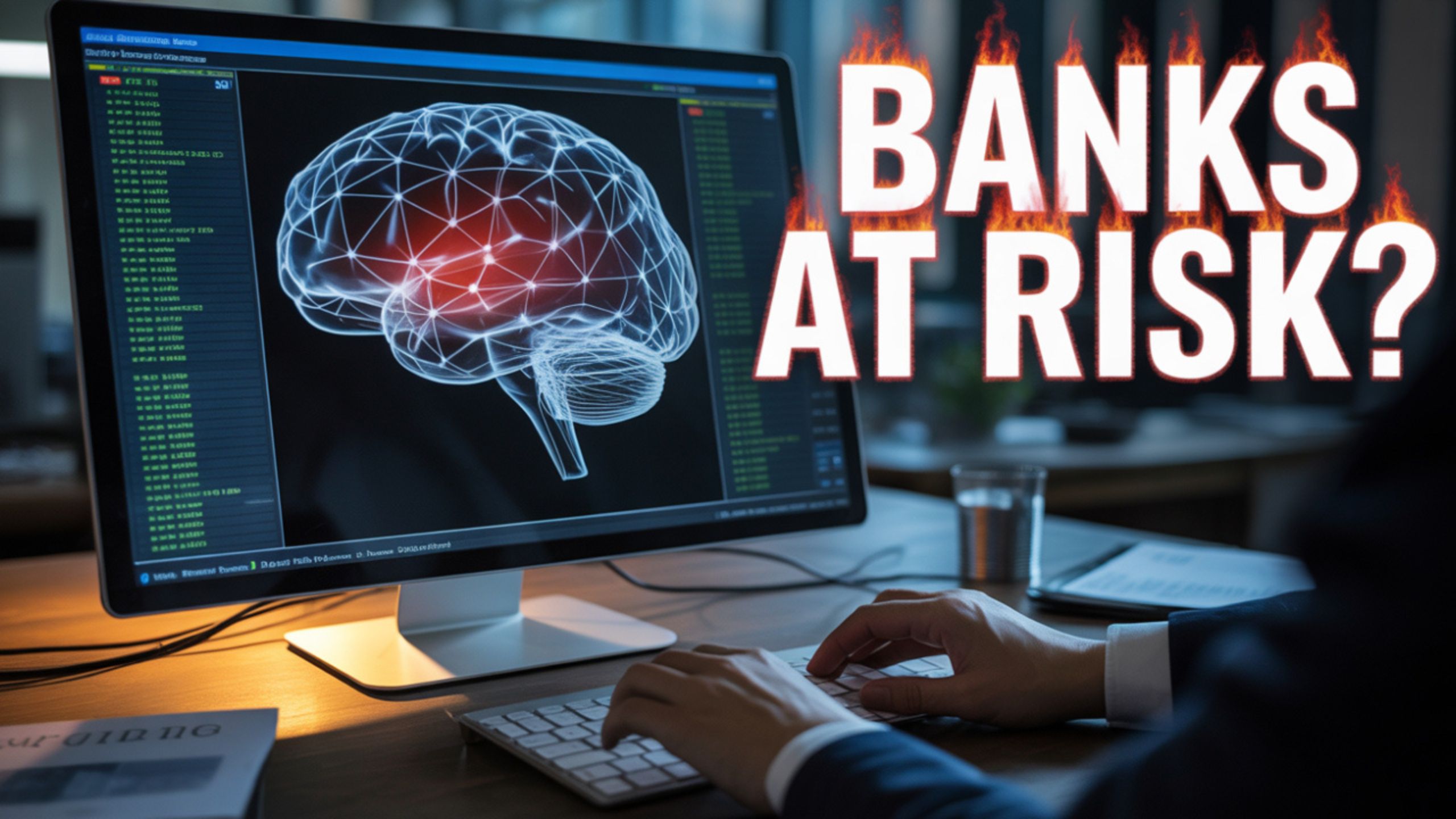AI Can’t Hack Your Bank Directly, But It Can Be Used to Hack– Artificial Intelligence is reshaping industries. Still, the financial sector faces a pivotal threat. Sam Altman, CEO of OpenAI, issued a stark warning that AI-enabled fraud is not a distant threat but a current reality. The misconception that “AI can hack your bank” directly is misleading. AI does not break through SSL encryptions or firewalls like a Hollywood movie. Instead, it is weaponized by malicious actors to bypass human-dependent security layers, making financial institutions highly vulnerable.
Why AI Cannot Directly Hack Your Bank’s SSL Encryption
Modern banks utilize robust SSL/TLS encryption protocols, multi-factor authentication, and layered cybersecurity systems to protect digital infrastructures. AI does not possess magical capabilities to decrypt these protections instantly. These cryptographic systems require brute force or quantum computing, beyond the capabilities of current generative AI systems.
However, AI can be used to simulate phishing attacks, create deepfake voice clones, and impersonate individuals to bypass human-centric verification processes, opening doors to social engineering attacks that can result in unauthorized access and fund transfers.
Voice Cloning: A Silent Threat in Financial Verification
Sam Altman’s concern over voiceprint authentication is justified. Financial institutions historically adopted voice biometrics for user verification, particularly for high-net-worth clients, because of its perceived ease and security. Today, AI can generate hyper-realistic voice clones, making it nearly impossible for a human on the other end to distinguish between the real user and a fraudulent call.
“AI has fully defeated that,” Altman emphasized, signaling the death knell for voice-based verification if banks do not adopt multi-layered identity confirmation strategies.
How AI Empowers Social Engineering Attacks
Artificial Intelligence models can scrape public data, generate personalized phishing emails, mimic writing styles, and simulate real-time conversations. These advanced capabilities enable attackers to:
- Trick bank employees into resetting account credentials.
- Convince customers to disclose sensitive account details.
- Manipulate identity verification calls with deepfake audio and video.
- Impersonate executives requesting urgent fund transfers in corporate environments.
The power of AI lies not in hacking SSL but in hacking humans.
Michelle Bowman’s Call for Collaboration: A Turning Point
Michelle Bowman, the Federal Reserve’s Vice Chair for Supervision, acknowledged the need for collaboration with OpenAI and other AI leaders to protect financial systems. The solution requires cross-industry alliances to:
- Develop robust AI detection frameworks for banking systems.
- Integrate advanced liveness detection technologies in customer authentication.
- Utilize behavioral biometrics and contextual data for fraud prevention.
- Strengthen internal protocols to validate fund transfer requests with multi-channel confirmation.
A New Verification Paradigm: Moving Beyond Voiceprints
To address AI’s rising threat, financial institutions must pivot to multi-factor, AI-resistant authentication:
- Biometric Layering: Combine facial recognition, device fingerprinting, and behavioral biometrics for identity validation.
- Transaction Pattern Monitoring: Implement AI to detect unusual transactions and flag suspicious activities in real time.
- Adaptive MFA: Enforce adaptive multi-factor authentication based on risk levels and transaction contexts.
- Customer Education: Train clients to recognize phishing attempts, voice cloning scams, and suspicious communication patterns.
The Ethical Responsibility of AI Leaders
While AI can be misused, responsible deployment of AI in security systems is key. OpenAI and other leading organizations are developing tools that can:
- Detect deepfake voices and videos.
- Identify phishing attempts using generative AI.
- Aid financial fraud investigators by analyzing patterns in scam operations.
- Enhance cybersecurity operations by automatically patching vulnerabilities.
Financial institutions need to leverage these AI-powered security tools to effectively counteract malicious uses of AI.
Building Institutional Resilience Against AI-Enabled Fraud
The path forward for banks involves:
- Regular Security Audits: Testing systems against AI-based social engineering tactics.
- Advanced Training for Employees: Equipping staff to identify deepfake threats and phishing signals.
- Partnerships with AI Security Firms: Collaborating with cybersecurity firms specializing in AI-driven threat detection.
- Policy Overhauls: Updating verification policies to remove outdated methods like voiceprint reliance.
AI in Finance: A Catalyst for Innovation and a Vector for Threats
While AI presents risks, it also offers tremendous potential for fraud detection, operational automation, and personalized banking experiences. Banks must:
- Embrace AI as a defensive tool while guarding against its misuse.
- Educate clients about the differences between direct hacking myths and AI-driven fraud vectors.
- Push for regulatory frameworks that mandate AI security standards in the financial sector.
Wrap Up: Awareness, Adaptation, and Action
Sam Altman’s warning underscores that AI can’t hack your bank’s encryption, but can hack the human layer protecting your accounts. Financial institutions that proactively adapt their verification systems and security postures will withstand this wave of AI-enabled fraud.
We must collectively recognize that while AI will not break SSL or encryption barriers, it can and will be used as a sophisticated tool in financial fraud. The solution lies in modernizing authentication, embracing AI for security, and creating a resilient banking ecosystem prepared for the AI era.

Selva Ganesh is a Computer Science Engineer, Android Developer, and Tech Enthusiast. As the Chief Editor of this blog, he brings over 10 years of experience in Android development and professional blogging. He has completed multiple courses under the Google News Initiative, enhancing his expertise in digital journalism and content accuracy. Selva also manages Android Infotech, a globally recognized platform known for its practical, solution-focused articles that help users resolve Android-related issues.





I used to ignore warnings like this. Not anymore.
The tech itself isn’t bad, but it can be used badly. That’s the core issue.
It’s not the AI itself, but the people using it that scare me.
Banks need to upgrade their fraud detection tools to keep up with AI tricks.
AI-powered scams feel like sci-fi, but they’re very real.
We need digital literacy in schools to combat this.
Thanks for this post. I’m more cautious with unexpected bank messages now.
AI voice cloning is terrifying. We’re not ready for that.
Everyone should be trained in recognizing these kinds of fraud.
Great write-up. We need more of this kind of education.
Scary to think about how realistic fake calls can be with AI now.
I can’t believe how far AI has come—and how risky it is.
I shared this with my parents. They trust phone calls too easily.
Good clarification. I thought AI could hack banks directly!
Phishing and social engineering are becoming more dangerous with AI.
This is a real concern. AI scams are getting more clever every day.
So true! AI scams rely on humans making mistakes.
Awareness is key here. People need to verify before trusting any message or call.
It’s time to double-check everything—emails, calls, even texts.
Sam Altman always has a balanced view on AI. This warning is worth listening to.
Scammers evolve with tech. We need to evolve faster.
AI ethics is more important now than ever before.
People should stop sharing personal data so casually.
This is happening now, not in the future. Stay alert.
Cybersecurity needs to be everyone’s responsibility now.
AI is just a tool—it depends on who’s holding it.
I hope regulators catch up soon. This can get out of control fast.
What a timely reminder. Even smart people can be fooled.
Glad Sam Altman is raising awareness. People need to stop thinking AI is harmless.
Deepfakes and voice AI are a real threat to banks.
Sam Altman is right—we can’t relax about AI risks.